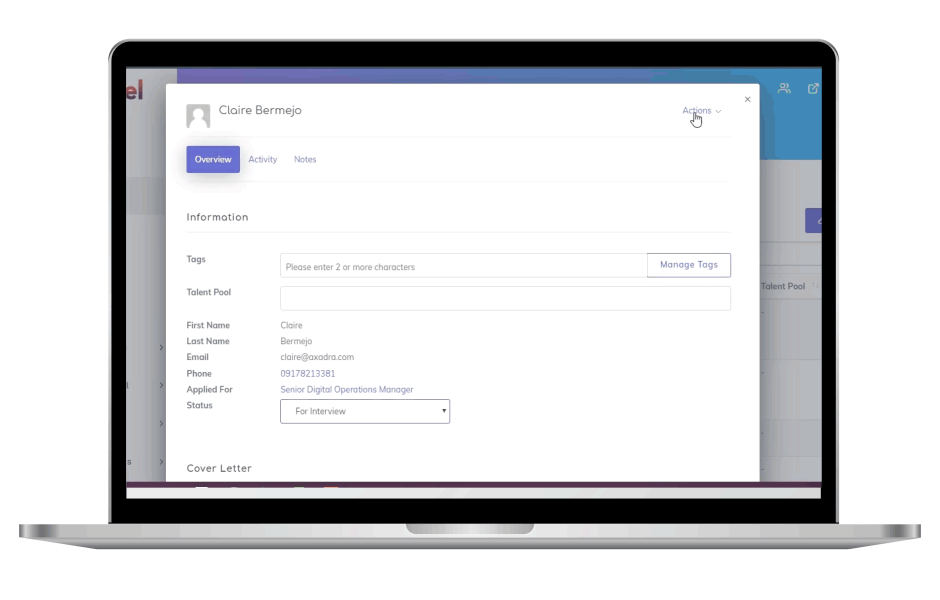Executive-level employees hold senior management positions that involve them in making decisions that shape the overall strategies and direction of the company. The stakes are high when hiring executives and require a nuanced approach to find the right candidate that aligns with the company’s objectives.
In this article, we’ll explore effective executive recruiting strategies to attract and hire top-tier executives who can steer your organization in the right direction.
The Challenges of Hiring Executives
Hiring executive-level employees can be a complex and demanding process, making it difficult for companies to secure the right talent. Not to mention, executive positions come with higher expectations due to the level of responsibility.
Unlike entry-level and mid-level positions, you may find a limited pool of talent at the executive level since most of these professionals are well-established in their respective organizations and/or industries. Thus, organizations looking to recruit an executive employee must go to great lengths to find a candidate and persuade them with competitive compensation, which may sometimes also entail relocation.
Finding the right candidate alone takes a lot of research followed by an extensive screening process to ensure a balance between hiring based on culture fit vs skills. These factors can make it difficult for companies to find and secure the right executive talent.
How to Recruit Executives
Whether you’re a corporation or a startup, customizing recruitment strategies for the position – in this case, executive-level professionals – increases your chances of successfully attracting and hiring the right executive. Here are effective strategies for recruiting executives:
1. Define the Role Clearly
Before starting the recruitment process, it’s essential to have a clear understanding of the role you are hiring for. Define the skills, experience, and leadership qualities required, as well as the scope of responsibilities.
Crafting a detailed job description helps not only in attracting suitable candidates but also in setting expectations for the interview process. A well-defined role ensures that both the employer and the candidate have aligned visions from the start.
2. Leverage Your Network
Networking is vital in the executive recruitment process, especially given the limited talent pool. Reach out to your contacts in the industry, former colleagues, and industry associations to see if they have any recommendations.
You may also consider tapping your organization’s network. You may have well-connected employees who can recommend qualified leaders.
But, of course, don’t be afraid to reach out beyond your network. Attend industry conferences, join professional associations, and participate in business networking events to connect with potential candidates. You can also leverage social media platforms like LinkedIn to engage with industry leaders and expand your reach.
Building relationships within your industry can yield valuable referrals and insights into available talent.
3. Utilize Recruitment Firms
For many organizations, especially startups and small to medium enterprises that may lack internal resources, recruitment firms can be a game-changer.
Recruitment firms specialize in identifying and recruiting high-caliber executives. They have extensive networks and HR tools, such as candidate tracking software, to vet candidates thoroughly. They can help you streamline the assessment and recruitment process so you can focus on high-potential candidates.
Hiring a recruitment firm to help you recruit executives is an investment toward finding a perfect fit faster.
4. Offer Competitive Compensation Packages
Offering competitive compensation packages is the most basic and straightforward executive recruitment strategy.
Executive-level employees expect competitive compensation packages that reflect their experience and contributions. Consider including performance-based incentives, stock options, and other perks that can make the senior position and the prospect of starting anew at your organization more appealing.
Before officially announcing your job opening to the world, research market trends to ensure that your salary and benefits packages are competitive. Be transparent about compensation during the early stages of discussions to set clear expectations.
5. Focus on Long-Term Potential
Hiring executives is all about the long term.
Professionals in the executive level prioritize their long-term potential in the organization. Given the position, organizations, too, would benefit from doing the same when screening candidates.
Look for candidates who not only meet the current requirements but also demonstrate the ability to grow with the company. Assess their leadership style, adaptability, and vision for the future. Probe into their strategic thinking and past experiences can provide insights into their long-term fit.
Focusing on the candidate’s long-term potential can help you overcome age bias in hiring, opening your organization to more opportunities.
6. Emphasize Company Culture
Executives are not only responsible for the business aspect of the organization, but also the culture, so finding a culturally fit executive is important.
Top-tier candidates also understand this, and thus, often prioritize company culture when considering a new position.
Highlight your organization’s values, mission, and work environment during the recruitment process. Showcase any unique cultural attributes through your website, social media, and recruitment materials. This helps candidates envision themselves in the organization and can significantly impact their decision to join.
7. Consider Internal Promotions
If you’re not sure how to recruit executives for your highly niche industry, consider promoting from within. Internal candidates already have a deep understanding of the company’s culture, operations, and strategic goals, which can lead to smoother transitions and faster productivity.
Beyond that, this approach also boosts employee morale and retention. Internal promotions are a strong demonstration that the company values career development. Additionally, showcasing a clear path for advancement can motivate other employees, fostering a culture of growth and loyalty within the organization.
8. Implement a Rigorous Selection Process
A thorough and structured selection process for executive candidates benefits both the recruiter or employer and the candidate. A systematic recruitment process allows employers to accurately assess each candidate’s skills and competencies. Conversely, this allows candidates to showcase their expertise and qualifications.
Though it may appear tedious, a rigorous selection process minimizes the risk of a mis-hire, which can be particularly costly at the executive level.
Use a combination of interviews, assessments, and reference checks to gauge a candidate’s skills and cultural fit. Involve key stakeholders in the interview process to gain different perspectives and ensure consensus on the final decision.
9. Provide a Strong Candidate Experience
The candidate experience is just as important as the employee experience. It provides the applicant with a preview of what it would be like to work with your company.
So, if you want to attract top-tier executives, establish a professional and systematic candidate experience. This serves as the foundation of a strong relationship between you and the candidate. Remember that these executive-level candidates are not looking for just any job – they’re looking for a company where they can grow and contribute long-term.
How do you accomplish this? Make sure that candidates are treated with respect and kept informed throughout the hiring process.
10. Maintain Communication and Engagement
On the subject of establishing a relationship with candidates, employers must also avoid burning bridges – even if they reject a candidate.
Throughout the recruitment process, maintain open lines of communication with candidates. Keeping them informed about their status can enhance their experience and reflect positively on your organization. Engage candidates with personalized messages and provide feedback after interviews.
A respectful and communicative approach can leave a lasting impression, making candidates more likely to accept an offer should it be extended. However, extending the same professional courtesy to candidates you did not hire may keep them in your professional network so you can still tap them when an opportunity emerges in the future.
Find the Right Executive for Your Company
Recruiting executive-level employees is a challenging process but can be rewarding if done correctly. With the right strategies for recruiting executives, you can attract top-tier talent and build a strong leadership team that your business needs to thrive in today’s competitive landscape.
Leverage these strategies and elevate your executive recruitment efforts with support from Skillfuel. Sign up for a free version of our software or contact us for inquiries!














